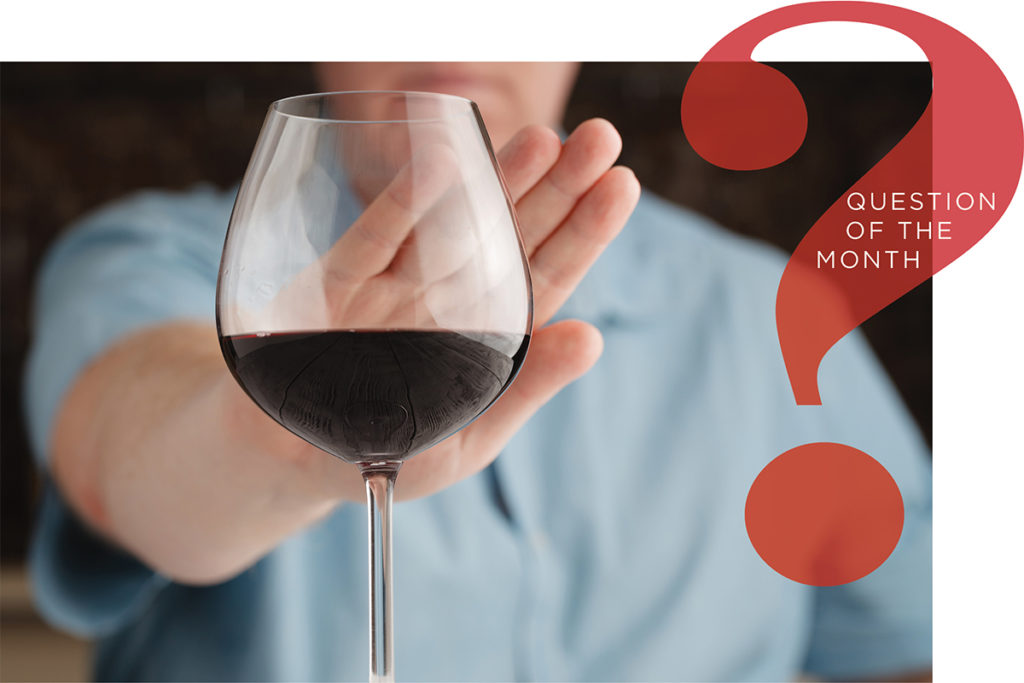Question of the Month: Is the Party Over for Drinking Alcohol?
Time to stop wine-ing?

A trio of recent research papers continue to spill the truth about how alcohol consumption affects our health, while tossing shade at the idea of the French paradox—a catchy phrase researchers came up with in the early 1990s to explain how sipping generous amounts of Bordeaux could allow a population to indulge in buttery croissants but still have fabulous coronary health. For starters, an investigation in the January issue of Clinical Nutrition linked drinking an average of more than 30 milliliters of alcohol daily (a little over 1 ounce!) with rising blood pressure numbers in men, raising the risk for heart ailments.
More pooh-poohing of booze comes from University College London, where the white coats found that people age 59 and over who’d been heavy drinkers for several years were at a greater risk for larger waistlines, stroke and worsening liver functioning. Heavy drinking could be just three or four drinks a day, four or more times a week.
And here’s more news that may make you pause before having a nightcap: Even light-to-moderate alcohol consumption (no more than one to two drinks per day) may be associated with overall elevated cancer risk, according to research in the journal Cancer conducted by scientists in Japan. Overall, cancer risk among the 63,232 patients appeared to be lowest at zero alcohol consumption.
Has recent research about the potential health risks associated with alcohol consumption changed your drinking habits? Do you still believe moderate intakes of wine and other alcoholic beverages pose little health risk? As part of an overall health program, do you address alcohol intake with clients? Send your answers to Sandy Todd Webster @[email protected].
Matthew Kadey, MS, RD
Matthew Kadey, MS, RD, is a James Beard Award–winning food journalist, dietitian and author of the cookbook Rocket Fuel: Power-Packed Food for Sport + Adventure (VeloPress 2016). He has written for dozens of magazines, including Runner’s World, Men’s Health, Shape, Men’s Fitness and Muscle and Fitness.





